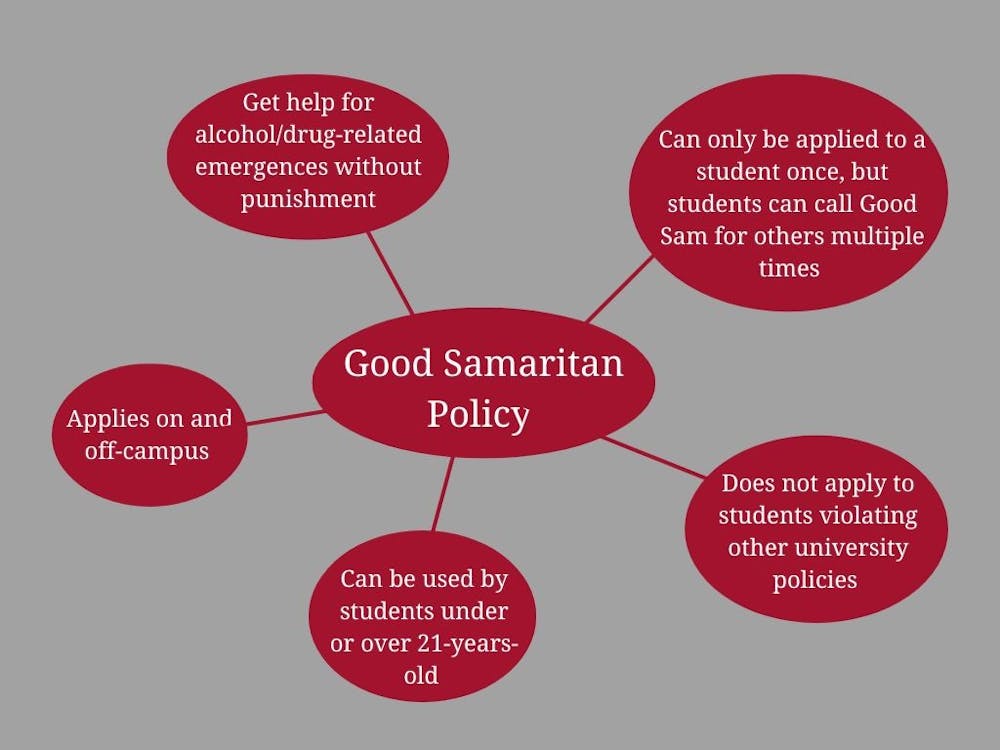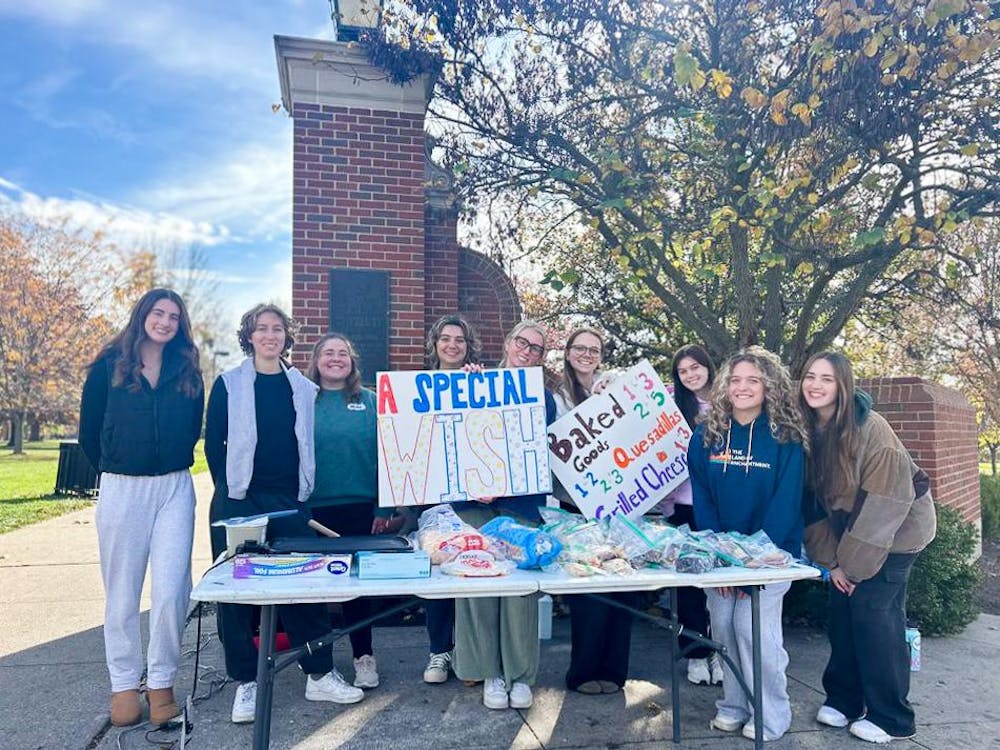Miami University students aren’t always the most careful when it comes to alcohol.
Olivia Novotny, a junior human capital management & leadership major, knows this firsthand from living in Scott Hall last semester.
“I was asleep, and my roommate came in the room at like 2 or 3 a.m.,” Novotny said. “And she was like, ‘Someone’s in the bathroom, and they sounded like they were choking while they were breathing.’”
Investigating the noise, the two discovered a girl passed out on a toilet, alive but unresponsive.
“We went downstairs to find someone, and our RD [Resident Director] was in her office,” Novotny said. “So she came upstairs with us into the bathroom … She ended up calling the police.”
Authorities arrived, and soon paramedics followed, eventually getting the girl out of the bathroom and taking her to get the necessary help. While talking with police, Novotny said they mentioned a specific university policy.
“After he opened the [stall] door, he said this would be written up as Good Sam,” Novotny said.
Miami’s Good Samaritan policy, established in the 2013-2014 academic year, is meant to incentivize students to find help for medical problems related to alcohol or drugs.
If a student sees a peer who has indulged too much and requires emergency medical attention, and the student reports the situation to the relevant authorities, Good Sam ensures that those involved will not have disciplinary action taken against them. It works on and off campus and is applicable for both undergraduate and graduate students.
“It’s really an attempt to have a policy that encourages students to seek help when their peers are in need,” said Kimberly Moore, dean of students. “That policy allows us to encourage students that if you need help, don’t worry about getting in trouble or the person getting in trouble, just get them help.”
The policy, however, is not universally applicable. According to the university’s FAQ page about Good Sam, “only 2.06% of all alcohol or drug-related incidents referred to the Office of Community Standards in 2020-21 were considered Good Samaritan incidents.”
Students violating another university policy at the same time, such as committing assault or possessing a fake I.D., will not be protected under Good Sam. In addition, students may only have the policy applied to them once during their time at Miami.
Enjoy what you're reading?
Signup for our newsletter
Students have to engage in a follow-up process where they meet with the Office of Community Standards to discuss their situation. They are also required to take a substance use assessment and attend an educational course on the subject.
Moore said incoming students are the biggest focus when it comes to providing information about Good Sam.
“It’s big in orientation, our target population is really our newest members of our community to know about this,” Moore said. “So it’s definitely baked into the different sessions that are done at orientation. It’s also part of the communication that our Residence Life staff does with their corridor meetings and things like that.”
Maria Vitull, director of the Office of Community Standards, is responsible for applying Good Sam to reported cases. In an email to The Miami Student, she wrote that while not all reported incidents fall under the policy, it is still important for student health and safety.
“The past few academic years (COVID semesters excluded), we have processed about 65 Good Samaritan cases per year,” Vitull wrote. “Our hope is that students continue to utilize the policy as often as needed to get help for their friends and classmates.”
Studies have shown that drinking among college students has decreased over the past few years, likely as a result of the COVID-19 pandemic. Moore also said the amount of conduct violations processed by Miami is down “historically.”
However, numbers could always go back up, which is why Moore said the university is doubling down on efforts to make students aware of Good Sam, especially post-pandemic.
“For a few years there was not a whole lot of going out, and so students weren’t paying attention to the policy as much, and we were more about educating around COVID,” Moore said. “This year, we are making a concerted effort to generate another campaign to really make sure that everybody’s aware of Good Sam.”
Part of that process is clearing up confusions students may have about the policy.
“While a student who was called for only gets to use the policy once to avoid disciplinary action, a student can call for help for another student as many times as needed throughout their Miami career,” Vitull wrote. “There are no limits to how many times a person can call for help.”
Vitull also specified that Good Sam applies when seeking assistance from figures of authority and can be used both on and off campus.
While first-years and sophomores are provided with the most direct information about Good Sam through outlets like orientation and residence hall meetings, Moore clarified that the policy is for students of all ages.
“There are a lot of times second-year students might be hanging out with juniors and some people are 21, and some people aren’t,” Moore said. “It benefits the reporter and the person who’s in trouble, so it’s not a clean line based on age.”
Moore hopes that students will continue taking advantage of the policy when they can for the greater safety of Miami.
“I think they just need to know that the policy exists, and that they know that it’s there in good faith,” Moore said. “It’s not anything other than to encourage them to seek help when they think their peer or their friend or they really need it. It’s really about promoting bystander behavior and bystander intervention.”




